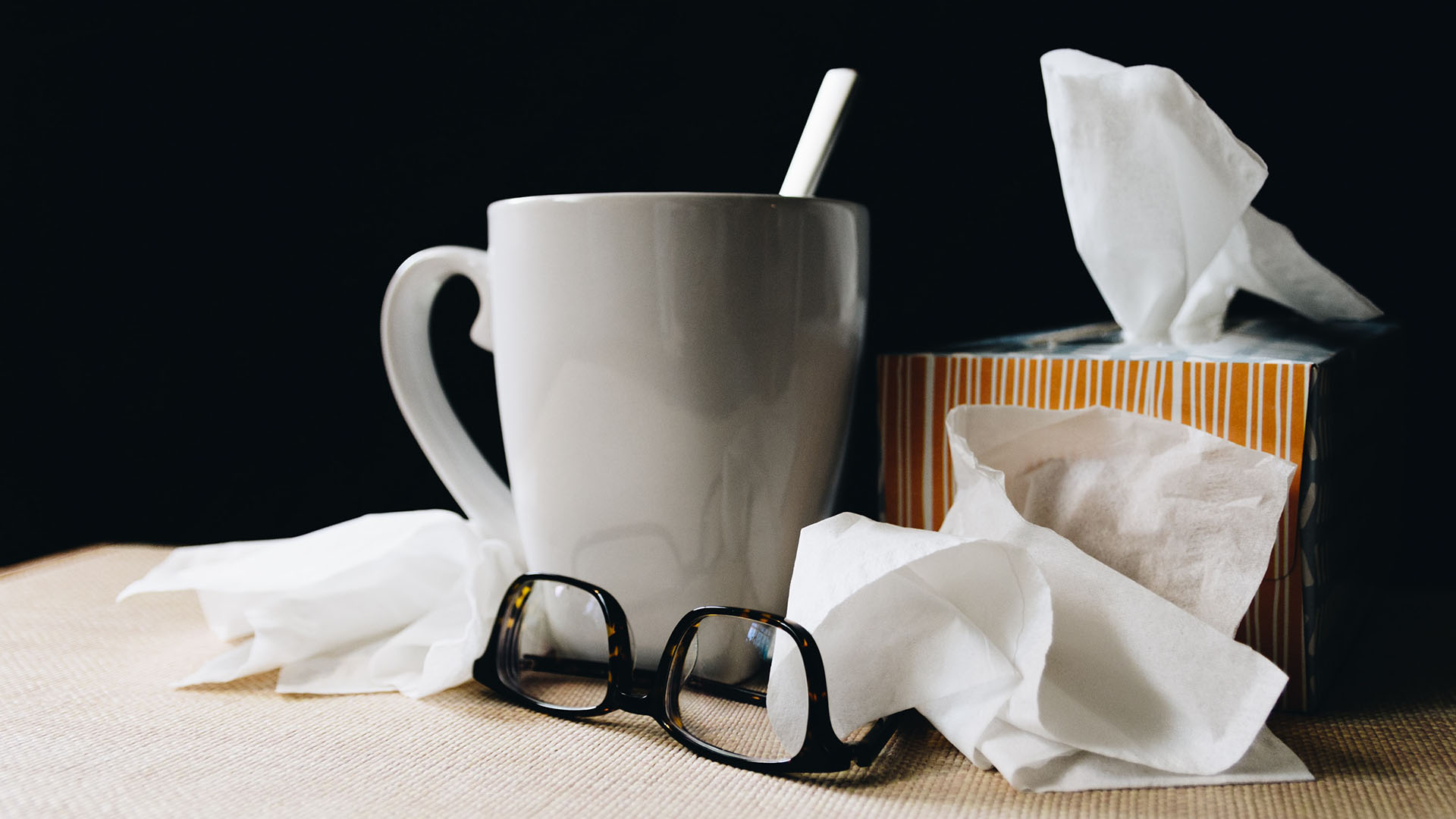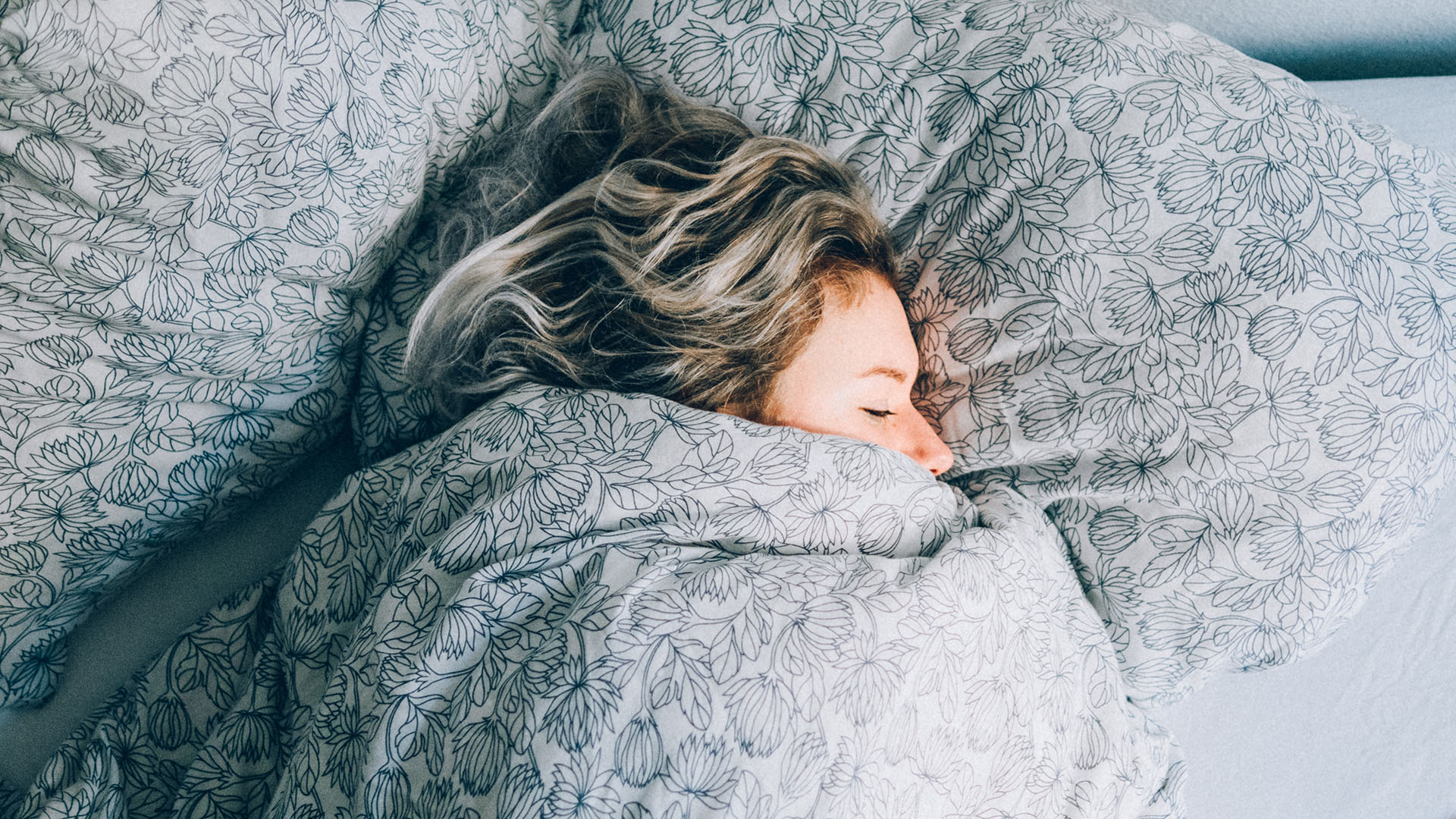How does sleep impact your immune system?
How to support immunity through sleep, according to a board-certified MD

Sleep and immunity have a bidirectional relationship, and the quality of each can help (or hinder) the other. All too often, we take a reactive (versus proactive) approach when it comes to immune health. This may look like reaching for vitamin C-rich foods and immune-boosting supplements when we get a runny nose or sore throat, or getting to bed earlier than usual only once the signs of being unwell kick in. However, safeguarding immunity should be on our daily to-do list, 365 days a year – and one of the best ways to positively impact your immune system is to get enough high-quality rest, night after night.
For this article, we consulted with a board-certified physician to find out exactly how sleep impacts on your immune system. We'll cover just how essential sleep is for immune health, including how healthy sleep patterns can help you stave off acute and chronic diseases, support recovery once illness manifests, and more.
How does sleep impact the immune system?
Sleep has a huge bearing on the immune system, for better or for worse. Dr Tamika Henry explains that decreased sleep can lead to increased cytokines (the protein molecules made by immune cells, which lead to inflammation), which is associated with development of metabolic and cardiovascular diseases. Poor quality sleep can also reduce the body's production of antibodies, which in turn makes you more susceptible to infection.

Acute and chronic illnesses aside, the quantity and quality of sleep influences how efficiently you'll bounce back from the demands that daily life presents, which includes but isn't limited to hectic work schedules, physical activity, and stress.
"A lack of peaceful rest can contribute to poor recovery from life stressors," Dr Henry continues. This can perpetuate a cycle of feeling worn out and ill-equipped to handle everyday challenges, whether they be physical, mental, or emotional.
While short-term stress can be helpful and protective, research shows that chronic stress "suppresses or dysregulates innate and adaptive immune responses… inducing low-grade chronic inflammation, and suppressing numbers, trafficking, and function of immunoprotective cells." Simply put, adequate sleep can encourage a healthy stress response, which in turn can positively impact immune function.

Tamika Henry, MD Southern California native who earned both her Bachelor of Science and Doctorate of Medicine degrees from the University of Southern California. For the past 13 years, she has been practicing as a board-certified family physician with an emphasis in functional medicine and is the founder of Unlimited Health Institute.
Can healthy sleep help you avoid illness?
If boosting immune function is a top priority for you, it's worth putting in the effort to build good sleep hygiene. "Healthy sleep patterns permit the body to repair and restore, thus allowing the body to help fight against illness," Dr Henry reiterates. "When we are sleeping, we are not eating, looking at screens, or focused on negative thoughts. The body is relaxed, de-stressed, and able to reset itself." This promotes a range of protective benefits for immunity and overall health, both short- and long-term, including preventing your next cold.
Sign up to get the BEST of Tom's Guide direct to your inbox.
Get instant access to breaking news, the hottest reviews, great deals and helpful tips.
"[Poor sleep] can lead to a weakened immune system, which can cause an increased risk for infections," says Dr Henry. This even applies to those who are fortunate enough to generally be in good health. In fact, a 2015 clinical trial published in the journal Sleep found that healthy adult men and women who slept under six hours per night had an elevated risk of developing the common cold, independent of variables that could potentially sway results such as "prechallenge antibody levels, demographics, season of the year, body mass index, psychological variables, and health practices."

Next, referring back to inflammatory cytokines (which increase with sleep deficits). Dr Henry explains that they're linked the development of metabolic and cardiovascular diseases includes the likes of type-2 diabetes and insulin resistance, as well as adverse cardiac events such as coronary artery disease, myocardial infarction, and heart failure.
On the flip side, good sleep quality has a range of perks that contribute to a person's short-term wellbeing, as well as supporting positive outcomes for long-term health. Dr Henry says quality sleep "improves immunity and helps maintain a healthy cardiovascular system, blood sugar, and weight" as well as helping the brain "remove toxins during sleep and improve mental focus and function".
Can adequate sleep help you get well faster?
While the goal is to have good sleep patterns in general, research supports the notion that rest is one of the best antidotes once illness kicks in. Per a 2019 review on the link between sleep and immunity, "Enhancement of sleep during an infection is assumed to feedback to the immune system to promote host defense."
As Dr Henry adds, "The thought is with adequate sleep, the body should have a faster recovery from illness." In contrast, someone who isn't getting enough good quality sleep is likely to take longer to feel well again. "When sleep is limited, the cells and antibodies that fight infection are decreased, thus impacting a person's recovery time when he or she is ill."

How to boost immune health through sleep
Remember that it's best to prioritize enough consistent, high-quality sleep to support strong immunity, instead of clocking in as many hours as possible only upon falling ill. If you're unsure of how much sleep you should aim for, consult this guide to sleep needs by age. However, note that individual needs may vary based on extenuating factors such as your lifestyle habits, medications, and sleep disorders.
On a parting note, to promote sleep quality and thus immune function, Dr. Henry offers the following tips:
- Keep a consistent bedtime schedule
Dr. Henry says that the ideal hours of sleep are typically from 10pm to 6am.
- Block out light
In the run up to bedtime, use lamps instead of overhead lighting. Then when it's time to go to sleep, block any light coming into your bedroom from outside. If there's lots of ambient light in your area, you might want to investing in blackout curtains to help with this.
- Reduce device use
Avoid any and all screens one hour before bed, and turn off (or silence) nearby electronics.
- Lay off late-night libations
This means no alcohol up to three hours before bedtime.
- Avoid stimulating activities close to bedtime
That means skipping aerobic exercises three hours before sleeping – though arguing, paying bills, watching news, and similar charged activities should also be limited to help you drift off to sleep.
Michele Ross is a freelance writer based in Los Angeles. For Tom's Guide and TechRadar, she interviews medical experts for sleep tips and tricks, as well as reviews mattresses and toppers to see which ones are truly worth buying for different types of sleepers and budgets. She has also covered a range of sleep topics for publications and brands including Well+Good, HUM Nutrition, and Mini Bloom, among others.

